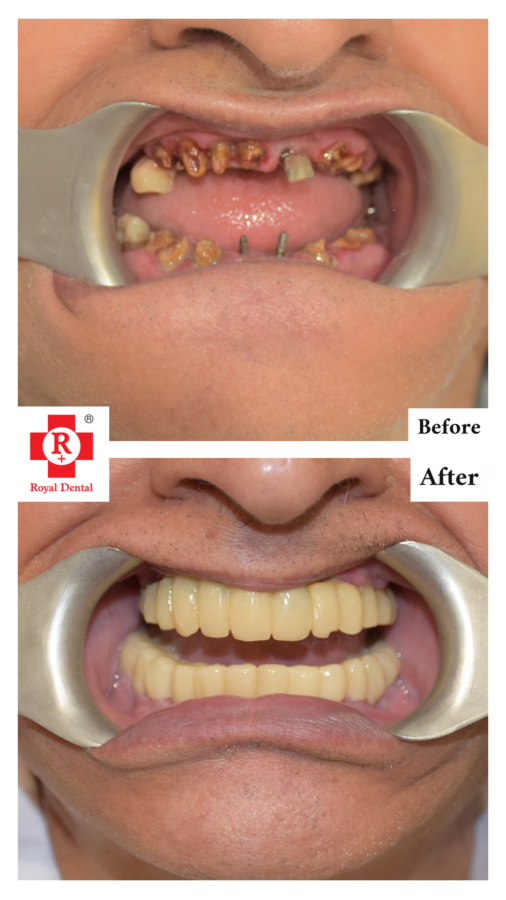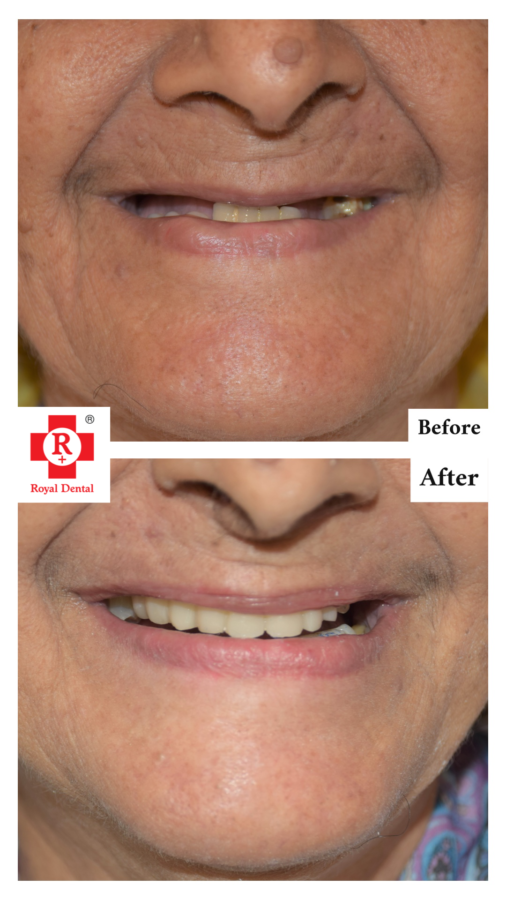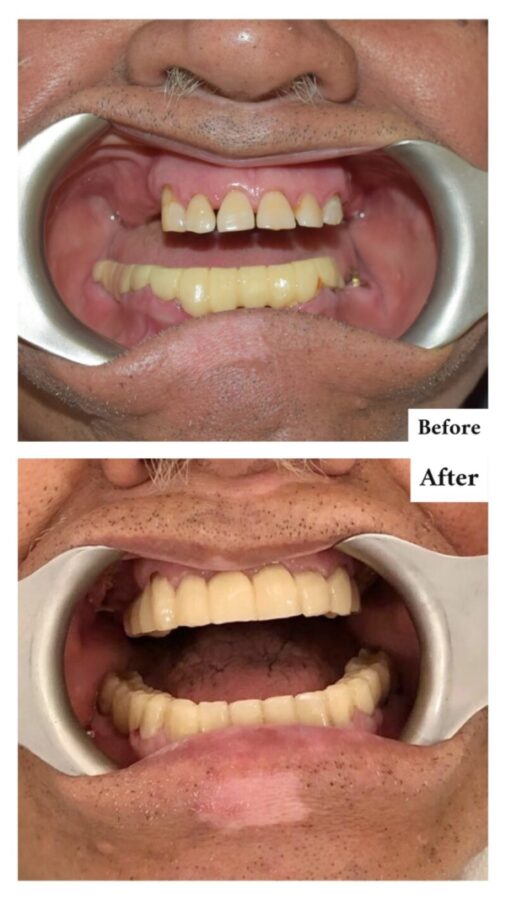Are you considering getting dental implants? It’s a great investment in your smile and overall oral health, but it’s important to understand that there are potential complications that can arise. From infection to implant failure, it’s crucial to take preventative measures to ensure the longevity and success of your dental implants. In this ultimate guide, we’ll walk you through everything you need to know to prevent dental implant complications. From proper oral hygiene techniques to lifestyle changes, we’ll cover it all. By following these tips and tricks, you’ll be able to enjoy your new smile for years to come without any unexpected setbacks. So, let’s dive in and learn how to keep your dental implants in tip-top shape!
Common reasons for Dental Implant Failure
Dental implants have revolutionized the field of dentistry, offering a permanent solution to tooth loss. However, like any medical procedure, there are potential complications that can arise. The most common complications associated with dental implants include:
Infection: Infection is one of the most common complications associated with dental implants. It can occur at any time during the implant process, from before surgery to after the implant has been placed. Symptoms of infection may include swelling, pain, and redness around the implant site. If left untreated, infection can lead to implant failure.
Implant Failure: Implant failure occurs when the implant does not fuse properly with the jawbone. This can happen for a variety of reasons, including poor oral hygiene, smoking, and systemic diseases such as diabetes. Signs of implant failure may include pain, mobility of the implant, or loosening of the implant. In some cases, implant failure may require removal of the implant.
Nerve Damage: Nerve damage is a rare complication associated with dental implants. It can occur during surgery or after the implant has been placed. Symptoms of nerve damage may include tingling, numbness, or pain in the gums, lips, or tongue. Nerve damage can be temporary or permanent, and in severe cases, may require surgical intervention.
Factors contributing to Dental Implant Failures
Poor Oral Hygiene
Poor oral hygiene is one of the most common causes of dental implant complications. Bacteria can build up around the implant site, leading to infection and implant failure. It’s important to brush and floss regularly and visit your dentist for professional cleanings to maintain healthy gums and prevent complications.
Smoking
Smoking is a significant risk factor for dental implant complications. It can reduce blood flow to the gums and slow down the healing process, increasing the risk of infection and implant failure. If you’re a smoker, it’s recommended that you quit before undergoing implant surgery to reduce your risk of complications.

Systemic Diseases
Systemic diseases such as diabetes can also increase the risk of dental implant complications. These diseases can affect the body’s ability to heal and fight infection, making it more difficult for the implant to fuse with the jawbone. If you have a systemic disease, it’s important to work closely with your healthcare provider to manage your condition before and after implant surgery.
Pre-Operative Assessment and Patient Selection
Pre-operative assessment and patient selection are critical to the success of dental implant surgery. Your dentist will evaluate your overall health, oral health, and bone density to determine if you’re a good candidate for the procedure. Factors that may affect your candidacy include:
Overall Health: Your overall health plays a significant role in your candidacy for dental implant surgery. You should be in good overall health and free from any medical conditions that may increase the risk of complications.
Oral Health: Your oral health is also an important factor in your candidacy for dental implant surgery. You should have healthy gums and adequate bone density to support the implant. If you have gum disease or bone loss, you may require additional treatment before undergoing implant surgery.
Bone Density: Bone density is critical to the success of dental implant surgery. The implant must fuse with the jawbone to provide a stable foundation for the replacement tooth. If you have low bone density, you may require a bone graft to increase the amount of available bone for the implant.
Techniques for Preventing Dental Implant Complications
Computer-Guided Surgery
Computer-guided surgery uses advanced technology to plan the placement of the implant. This technique allows for precise placement and reduces the risk of complications.
Immediate Implant Placement
Immediate implant placement involves placing the implant at the same time as tooth extraction. This technique can reduce the overall treatment time and improve the success rate of the implant.
Sinus Lift
A sinus lift is a surgical procedure that increases the amount of available bone in the upper jaw. This technique may be necessary for patients with low bone density in this area.



Thorough planning
Before the implant procedure, your dentist will evaluate your oral health, medical history, and discuss your goals and expectations. They will also take 3D scans and X-rays to assess your bone density, tooth spacing, and other factors that can affect implant placement. This helps to identify any potential complications and plan the treatment accordingly.
Skill and Experience
The success of the implant procedure depends on the skill and experience of the dentist. Ensure that your dentist is qualified and experienced in implant placement to ensure that the implant is placed correctly and securely.
By following these techniques, you can reduce the risk of dental implant complications and ensure the success of the implant procedure.
Post-Operative Care and Follow-Up
Proper post-operative care and follow-up are critical to the success of dental implant surgery. Your dentist will provide detailed instructions on how to care for your implant after surgery, including:
Pain Management: You may experience some discomfort after implant surgery. Your dentist will prescribe pain medication to help manage any pain or discomfort.
Avoid smoking and excessive alcohol consumption: Smoking and excessive alcohol consumption can increase the risk of implant failure and other oral health problems. Quit smoking and limit alcohol consumption to ensure the success of the implant procedure.
Follow post-operative care instructions: Follow your dentist’s instructions for post-operative care, including diet, medication, and oral hygiene. This can help ensure proper healing and reduce the risk of complications.
Good oral hygiene: Maintaining good oral hygiene is crucial for preventing implant complications. Brush your teeth twice a day, floss daily, and use an antiseptic mouthwash to remove bacteria and prevent gum disease.
Regular dental checkups: Schedule regular dental checkups to monitor your oral health and detect any potential issues early. Your dentist can also clean and polish your teeth, which can help prevent plaque buildup and gum disease.
Diet and Lifestyle Modifications for Implant Success
Eat a Balanced Diet: A balanced diet is essential for maintaining healthy gums and bone density. You should eat a diet rich in fruits, vegetables, and lean protein to support the healing process.



Quit Smoking: Smoking can increase the risk of complications and slow down the healing process. If you’re a smoker, it’s recommended that you quit before undergoing implant surgery.
Avoid Hard or Sticky Foods: Hard or sticky foods can damage the implant or disrupt the healing process. It’s important to avoid these foods until your implant is fully healed.
Maintenance and Hygiene for Dental Implants
Proper maintenance and hygiene are critical to the long-term success of dental implants. You should:
Brush and Floss Regularly: Brush and floss regularly to remove bacteria and plaque from the implant site.
Use an Antibacterial Mouthwash: An antibacterial mouthwash can help reduce the risk of infection and maintain healthy gums.
Visit Your Dentist Regularly: Regular dental check-ups are essential for maintaining healthy gums and identifying any potential complications before they become serious.
Importance of Regular Dental Check-Ups
Regular dental check-ups are critical to the success of dental implant surgery. Your dentist can monitor the implant and identify any potential complications before they become serious. During your check-up, your dentist will:
Examine the Implant: Your dentist will examine the implant to ensure it’s properly fusing with the jawbone and there are no signs of complications.
Clean the Implant: Your dentist will clean the implant to remove any bacteria or plaque that may have built up around the implant site.
Provide Recommendations for Maintenance: Your dentist will provide recommendations for maintaining the health of your implant and preventing complications.
Conclusion
Preventing dental implant complications is possible with proper care and planning. By following these tips and tricks, you can ensure the longevity and success of your dental implants. Remember to maintain proper oral hygiene, make lifestyle modifications, and visit your dentist regularly for check-ups. With proper care, your dental implants will provide a beautiful, healthy smile for years to come.





